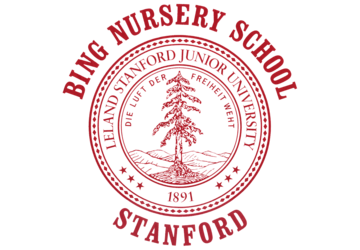
By Jess Goodman, Teacher
The Play First Summit, an online conference held July 20–24, was an exciting collaboration between Sally Haughey of Fairy Dust Teaching and Tom “Teacher Tom” Hobson. With the COVID-19 pandemic and the Black Lives Matter movement as impetus, Haughey and Hobson assembled a platform of 20 speakers from six continents to have pertinent conversations about the current state of play in early education. More than 75,000 people from over 100 countries (including the bulk of Bing teachers) tuned into these pre-recorded Zoom conversations. The virtual nature of this conference allowed a global community to rally together and reflect deeply on the rights of children and the necessity of play for the betterment of our world.
For those joining in from the United States, the webinars shed light on the ways other countries are reopening and adjusting in response to school health restrictions. John Yiannoudis, founder of Dorothy Snot Preschool and Kindergarten in Athens, Greece, discussed how children retained relationships with peers during shelter-in-place through Zoom. These digital meetings provided meaningful opportunities for social sharing, much like the ways Bing teachers provided comforting and connecting experiences for children through virtual storytimes and snacktimes during spring quarter when, in response to the pandemic, the school abruptly closed in March. The semblance of togetherness afforded by these online gatherings preserved continuity until Dorothy Snot school reopened in June. Suzanne Axelsson’s school in Stockholm, like all Swedish preschools, remained open amid the coronavirus outbreak. Sweden’s preservation of preschool operations necessitated a heightened level of trust between families and teachers, and Axelsson felt a strong sense of solidarity in her school as members rigorously adhered to safety protocols. And Wendy Lee from New Zealand touted her country’s containment of the virus and their commitment to quarantining at home as a gesture of compassion. She shared New Zealand’s culturally responsive approach to both confronting the virus and respecting children’s well-being. All of these stories provided food for thought as the United States confronts its own back-to-school challenges.
Ijumaa Jordan and Chazz Lewis provided relevant and frank reflections on the national racial tumult ignited by police brutality through their lens as people of color living in the United States. An early childhood education consultant focused on anti-racism, Jordan challenged educators to work toward uncovering their own racial biases and to scrutinize the ways in which dominant white culture can quietly permeate schools’ daily practices. Haughey, the interviewer, concurred with Jordan that it is uncomfortable for her as a white person to recognize and address racial biases entrenched in society. Jordan called for actions to dismantle racism and to create culturally responsive environments for children of color. Lewis, an educational specialist in the Washington, D.C., area, used TikTok as a medium for sharing his perspective on school during shelter-in-place. Lewis addressed the discrepancy between protest as a language of expression within our democracy and children not being taught this essential strategy of advocacy. Thus, children are left less empowered and informed on how to use their voices for change.
Two participants that perhaps most amplified the essentialness of play at this summit were Lenore Skenazy and Peter Gray. Skenazy, nicknamed “World’s Worst Mom” after she let her then-9-year-old ride the New York City subway by himself, questioned why our society is “defaulting to paranoid parenting” and lamented the trend to remove risk and freedom from childhood. After the subway incident earned her the disparaging moniker, Skenazy went on to co-found Let Grow, a nonprofit organization working to supply schools, parents and communities with free play experiences and resources. A bright side of the pandemic in Skenazy’s mind is that parents are loosening the amount of control they impose on their children as they try to juggle working and caretaking from home. In the same vein, Peter Gray, professor of psychology at Boston College and author of the seminal work Free to Learn, condemned the lack of play in the life of a child today. Far removed from a child’s freedom in our hunter-gatherer evolutionary past, the modern world is awash with adult-directed and -supervised learning environments. Gray reminded listeners that children are entirely capable of educating themselves, and they learn skills that promote happiness and pro-social citizenship when afforded the autonomy of free play.
At the conclusion of the event, the chorus of international voices featured at the conference called out for a collective recommitment to unstructured play. The coronavirus catastrophe has rattled the world and confronted our educational systems, yet this disruption has forced educators to re-engage with their duty as protectors of childhood. A new and improved normal may await if educators advocate for the rights of children within local and national politics, confront the racial inequities staining our institutions, and value free play as a universal need for all children.